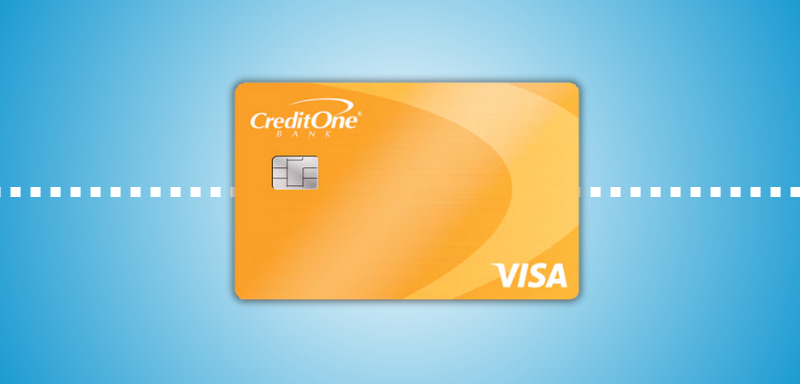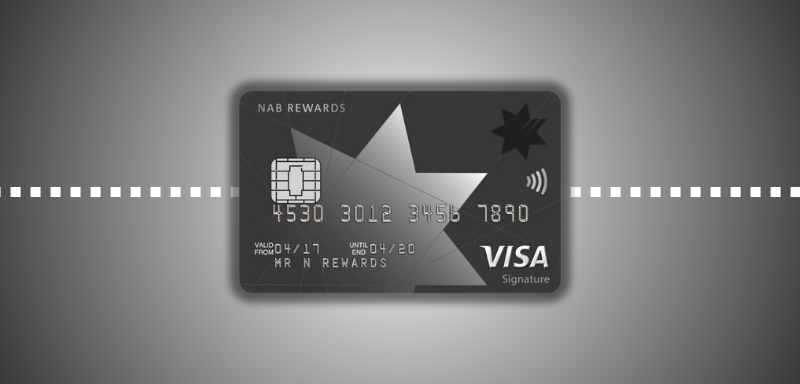Small Business Financing
Understanding Business Credit Scores and Why They Matter
Discover how business credit scores influence your company’s financing, partnerships, and opportunities. Learn actionable steps to build your score and secure better business terms.
Advertisement

Every business owner feels the pressure when applying for funding or negotiating with suppliers. Buried within those decisions, business credit scores quietly determine your company’s borrowing power, insurance rates, and even partnerships.
When banks, lenders, or vendors look at your application, they don’t just consider your revenues. They want solid evidence of how you manage your debts—history, reliability, and stability. That’s where business credit scores step in, shining a spotlight on your track record.
This article unpacks the details behind business credit scores—why they exist, how you build them, and the practical ways they influence your company’s future. Explore the strategies below to empower every financial decision you make.
Grasping What Business Credit Scores Reveal Instantly
The moment a lender pulls your business credit report, they see a snapshot of your company’s financial trustworthiness. This number can tip scales in your favor or quickly close doors.
Business credit scores reflect far more than simple annual revenues. They aggregate timely payments, credit utilization percentages, length of your accounts, outstanding debts, and negative marks. Lenders review this data at a glance.
Breaking Down Key Score Factors for Clarity
A major component in business credit scores is payment history to creditors and suppliers. This single area shows if you follow through with commitments or if delays are routine.
Credit utilization—how much credit you use compared to what’s available—carries significant weight too. Business credit agencies monitor whether you appear stretched.
Account history length and any derogatory marks, such as collections or tax liens, also influence business credit scores. The older and cleaner your accounts, the higher your trustworthiness.
Comparing Major Business Credit Score Systems
Dun & Bradstreet, Experian Business, and Equifax Small Business produce the most recognized business credit scores. Their models vary, but the core factors remain similar.
Dun & Bradstreet issues a PAYDEX score from 0 to 100; 80 and above signals consistent, timely payments, while lower scores mean late payments. Equifax and Experian use their own score bands.
Most trade partners and banks consider 75+ on PAYDEX and 80+ on other systems as strong. Low scores make approvals harder, increase costs, and shrink supplier flexibility.
| Score Provider | Score Range | Keys to High Score | What to Do Next |
|---|---|---|---|
| Dun & Bradstreet (PAYDEX) | 0-100 | Pay suppliers before invoice due dates | Check your PAYDEX monthly; flag errors |
| Experian Business | 0-100 | Lower credit utilization; maintain aged accounts | Request a full report; update business info |
| Equifax Small Business | 101-816 | Resolve collections and tax liens quickly | Dispute any inaccuracies you find |
| FICO SBSS | 0-300 | Combine business and personal payment history | Build both personal and business credit profiles |
| Creditsafe | 0-100 | Demonstrate stability in supplier relationships | Add new trade references proactively |
Establishing and Managing Your Company’s Credit from Day One
New business owners often overlook the value of establishing credit profiles early. This foundation influences every future lending, leasing, or partnership opportunity you pursue.
To manage business credit scores, start by registering your company where major bureaus can identify it. This allows agencies to track your actual payment activities, not just your business registration date.
Kickstarting Your Credit Profile Effectively
Apply for an Employer Identification Number and open business-only bank accounts in the company’s name. This signals to bureaus that you’re operating as a separate entity from personal finances.
Secure vendor or supplier accounts that report to credit bureaus. Ask vendors if they report payments and prioritize those who do. Each reported payment builds your history.
Obtain a small business credit card, use it for recurring expenses, and pay off the balances monthly. This behavior is visible to bureaus and rapidly builds your business credit scores.
- Register your business with the Secretary of State to ensure it’s publicly listed and easily verified by credit bureaus and potential partners or lenders.
- Open utility accounts (phone, internet, electric) under your business name—payments may be reported, adding incremental positive marks to your credit file.
- Obtain a D-U-N-S number from Dun & Bradstreet—most corporate suppliers and bureaus require one to match your data to your credit file reliably.
- Apply for net-30 accounts with vendors (pay in 30 days) to establish a short-term, score-impacting payment record.
- Set up business insurance in your company’s name and pay premiums on time, signaling operational responsibility and financial discipline to underwriters.
Every step tightens the linkage between your operating decisions and business credit scores, forming the foundation lenders and vendors examine closely down the line.
Monitoring and Updating Your Credit Data
Schedule quarterly checks with Dun & Bradstreet, Experian, and Equifax Small Business. Inaccuracies can persist and lower your business credit scores needlessly for long periods.
- Sign up for credit monitoring tools that will alert you to score changes, new accounts, or negative marks so you catch mistakes or potential fraud early.
- Verify your company’s address, phone number, and registration data at least once a year. Small data mismatches can create shadow files and split credit histories.
- Dispute any errors or outdated negative marks immediately—fraud, collections already paid, or misapplied liens unfairly drag down your scores.
- Communicate with major vendors if a late payment is processed; ask them for a goodwill adjustment or to hold off reporting while you resolve issues.
- Document improvements (paid debts, closed negatives) and submit supporting proof to all active bureaus, closing the loop on correcting your business credit scores.
Routine monitoring and active dispute resolution help prevent unnecessary declines in your business credit scores, saving money and stress long term.
Interpreting and Using Credit Scores to Advantage
Knowing the signals business credit scores send, you can leverage them to negotiate lower interest rates, access larger credit lines, or influence vendor terms immediately.
High business credit scores become a tool—lenders and partners interpret them as lower risk, offering benefits that those with weaker scores rarely receive.
Securing Better Bank Loans through Score Insights
Banks may approve your loan automatically or at more competitive rates if business credit scores are in the top quartile. Review your report before applying to correct weaknesses.
Consider scripting your bank meeting: “We’ve improved our PAYDEX by 20 points over six months through early payments”—offering context and control in negotiations.
Offer to provide up-to-date credit reports to supplement your application package, demonstrating transparency and confidence in your financial management.
Negotiating Supplier and Insurance Agreements
When renewing insurance, request that agents review your updated credit file. Higher business credit scores can translate directly into lower premiums and more flexible payout terms.
With suppliers, reference your score in emails—“Our D&B record confirms our on-time payment reputation”—to justify requests for larger orders or extended terms.
Use your business credit scores as leverage in pricing or contract renewal discussions; credible, data-backed arguments can shift negotiations in your favor.
Avoiding Common Pitfalls That Lower Business Credit Scores
Poor habits can erode your business credit scores—even without large debts. Identifying and addressing them quickly shields your enterprise from hidden consequences down the line.
Immediate awareness of payment timelines, credit utilization, and data errors helps eliminate long-term damage and protects your borrowing power, no matter the business’s age or size.
Preventing Late Payments and Negative Reporting
Automate or calendar every payment deadline—use digital reminders, bank scheduling tools, or a dedicated finance calendar. Consistent on-time payments are the backbone of business credit scores.
When conflicts arise (like cash flow gaps), communicate immediately with vendors and banks. Showing professionalism and proactivity can buy grace periods or prevent negative reporting.
Don’t let absent-minded lapses snowball—late fees, collections, or even a single 60-day payment can tank otherwise solid business credit scores for years.
Avoiding Overborrowing and Score Inflation
Taking out multiple loans or maxing credit lines increases your utilization ratio, a red flag for bureaus. This appears risky to lenders, even if every debt is current.
Review your open accounts quarterly; close unused lines strategically rather than suddenly, as abrupt closures reduce account age (also a score factor).
Borrow less than you qualify for. Giving yourself breathing room improves your utilization and signals fiscal caution to all credit agencies.
Practical Steps for Improving Business Credit Health
Commit to ongoing improvements, as even small, targeted changes can strengthen business credit scores within months. Regular reviews and operational tweaks deliver compounding financial benefits for your company.
Follow a focused plan with concrete, measurable steps—each tied directly to credit agency scoring criteria for maximum, lasting impact on your business credit scores.
Escalating Positive Payment Behaviors
Pay every bill early, not just on time. Bureaus value early payments more, and this habit can accelerate your rise in business credit scores, distinguishing your record from countless others.
Choose vendors with strong reporting histories. Ask, “Do you report to major credit agencies?” and shift significant spending toward those who do, multiplying positive entries on your file.
Set up notifications for every new account—email, SMS, or software alerts—minimizing human error and catching problems before they become negative marks on business credit scores.
Building Robust Trade and Financial Relationships
Request credit limit increases from banks and vendors once you’ve shown consistent, on-time payments, improving your utilization rates and boosting business credit scores tangibly.
Initiate annual MoUs (memoranda of understanding) with suppliers documenting on-time payment agreements. These formalized arrangements signal to both partners and bureaus your commitment to financial stability.
Encourage partners to provide written trade references—submit these proactively to bureaus to increase the depth and recency of your relationship reporting, underwriting stronger business credit scores.
Using Business Credit for Expansion and Resilience
Consistent attention to business credit scores empowers sustainable expansion—granting access to financing options when opportunities or challenges appear unexpectedly on the horizon.
Strong business credit scores serve as a corporate shield, protecting your personal credit and assets while providing foundation to grow and pivot without hesitation or fear.
Pursuing Growth with a Credit-Enabled Mindset
Businesses with high credit scores secure lines of credit and expansion loans even during dips in revenue or economic shifts, keeping projects alive when external shocks occur.
Use your scores as evidence when courting investors or forming new partnerships—point to recent improvements and how they’ve fueled operational reliability or expansion into new markets.
View business credit scores as a reputation asset, not just an approval number; cultivate them purposefully to unlock better pricing, terms, and retention offers across industries.
Planning for Uncertainty with Financial Flexibility
Establish a financial reserve or emergency credit line based solely on business credit. This decouples your operational survival from personal accounts, offering genuine peace of mind.
Bankers may pre-approve working capital loans or overdraft facilities for companies with excellent business credit scores. Use these products strategically during lean quarters to avoid missed opportunities.
Document lessons learned from each credit negotiation. Build checklists and templates for future employees, embedding a score-conscious culture throughout your business operations.
Bringing Business Credit Scores into Everyday Decisions
Every major business decision—leasing space, purchasing equipment, hiring, or fundraising—will leave you referencing your business credit scores, directly or indirectly, throughout the process.
Track progress over quarters and years. Noticing trends, even slow improvements, helps you plan confidently and adjust your goals in line with evolving business realities.
Strong business credit scores don’t happen by accident. Intentional management, habit formation, and responsiveness to score alerts can make them a silent driver of your business’s best opportunities.
Trending Topics

Investments in 2025: Where Aussies Are Putting Their Money
Discover where Australians are investing in 2025—from ethical funds to real estate. Explore the top investment trends this year.
Keep Reading
Credit One Bank Secured Card Review: A Smart Path to Building Credit
Explore the benefits of the Credit One Secured Credit Card — from cash back rewards to monthly reporting that supports credit health.
Keep Reading
Common Mistakes with Credit Lines and How to Avoid Them
Credit lines made simple. Understand the errors that lead to debt and learn how to manage borrowing responsibly for long-term stability.
Keep ReadingYou may also like

Bendigo Bank Unsecured Personal Loan review: From $2,000 up to $50,000
Get the financial freedom you need with Bendigo Bank Unsecured Personal Loans. Explore loan amounts, rates, and features in our review!
Keep Reading
NAB Rewards Signature Credit Card review: Bonus Points!
The NAB Rewards Signature Credit Card offers up to 180,000 bonus points, extensive travel benefits, and more. Check this full review!
Keep Reading
Unity Bank Variable Personal Loan Review: Starting at $500 to fit every need
From flexible repayment options to a user-friendly application process, we break down what makes the Unity Bank Variable Personal Loan tick.
Keep Reading